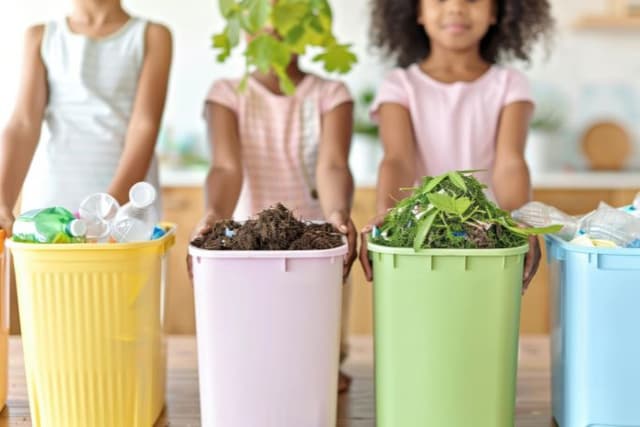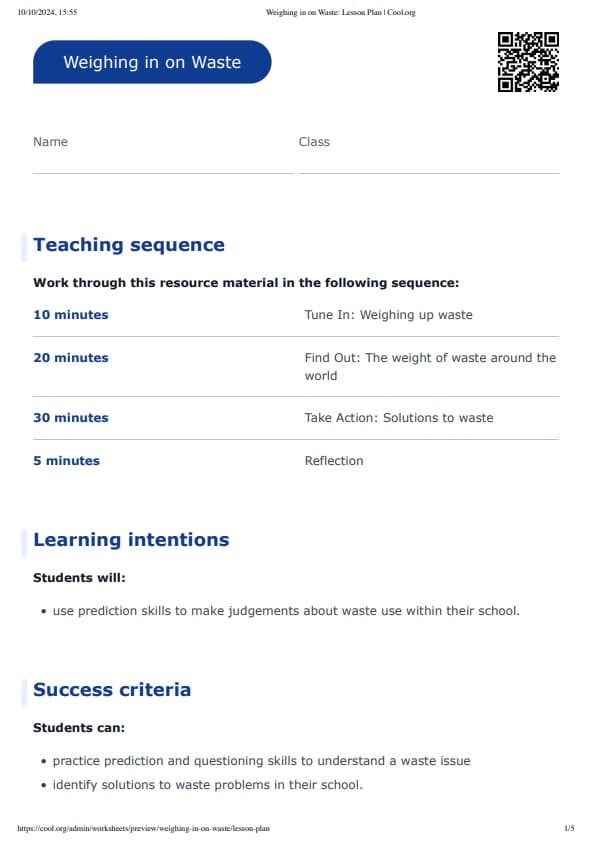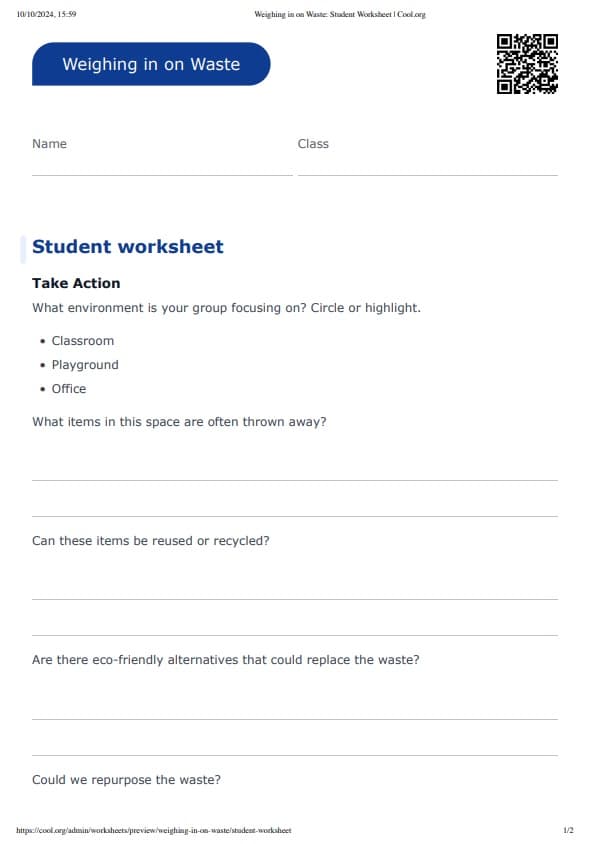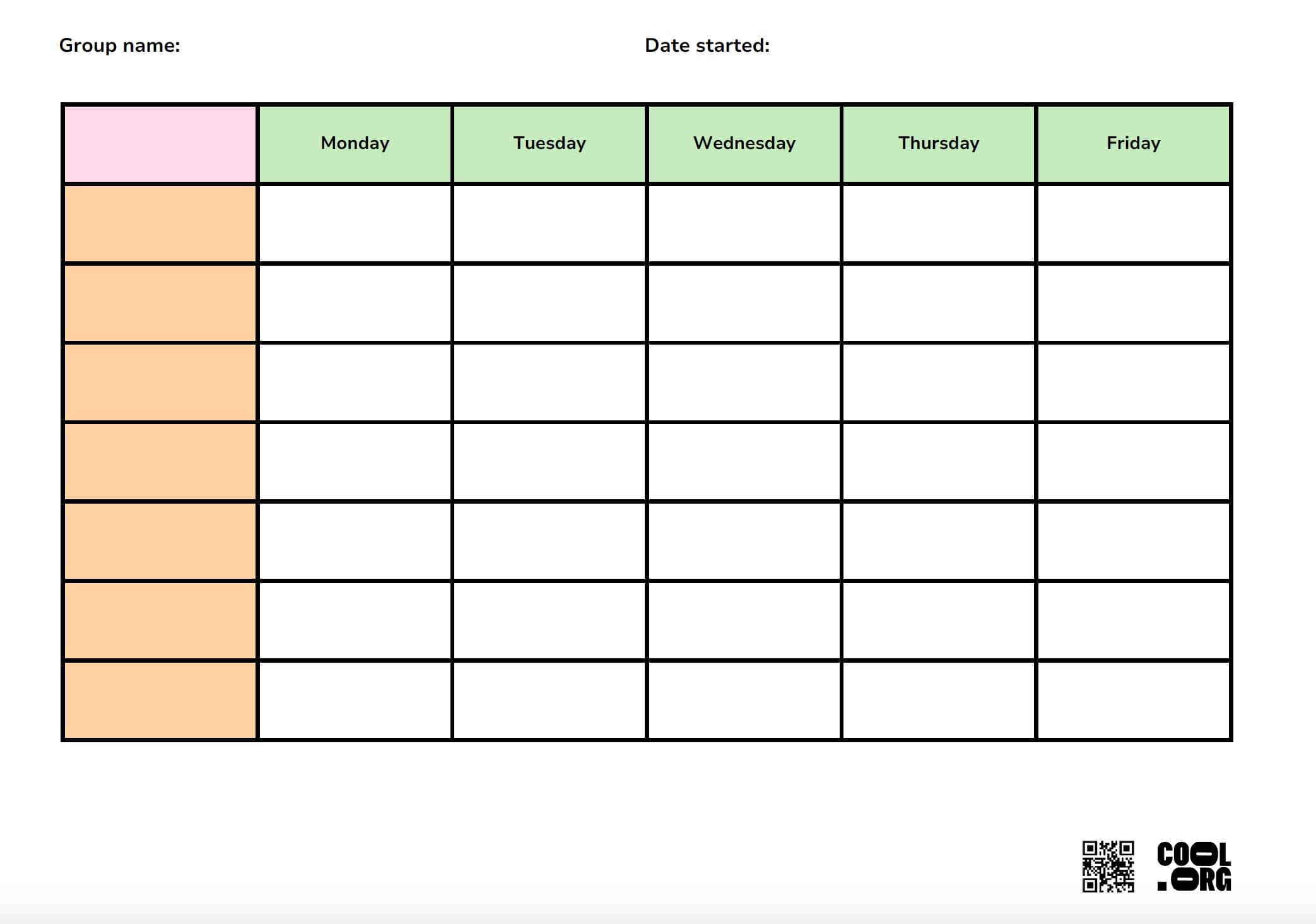Learning intentions:
Students will...
- use prediction skills to make judgements about waste use within their school.
Success criteria:
Students can...
- practice prediction and questioning skills to understand a waste issue
- identify solutions to waste problems in their school.



